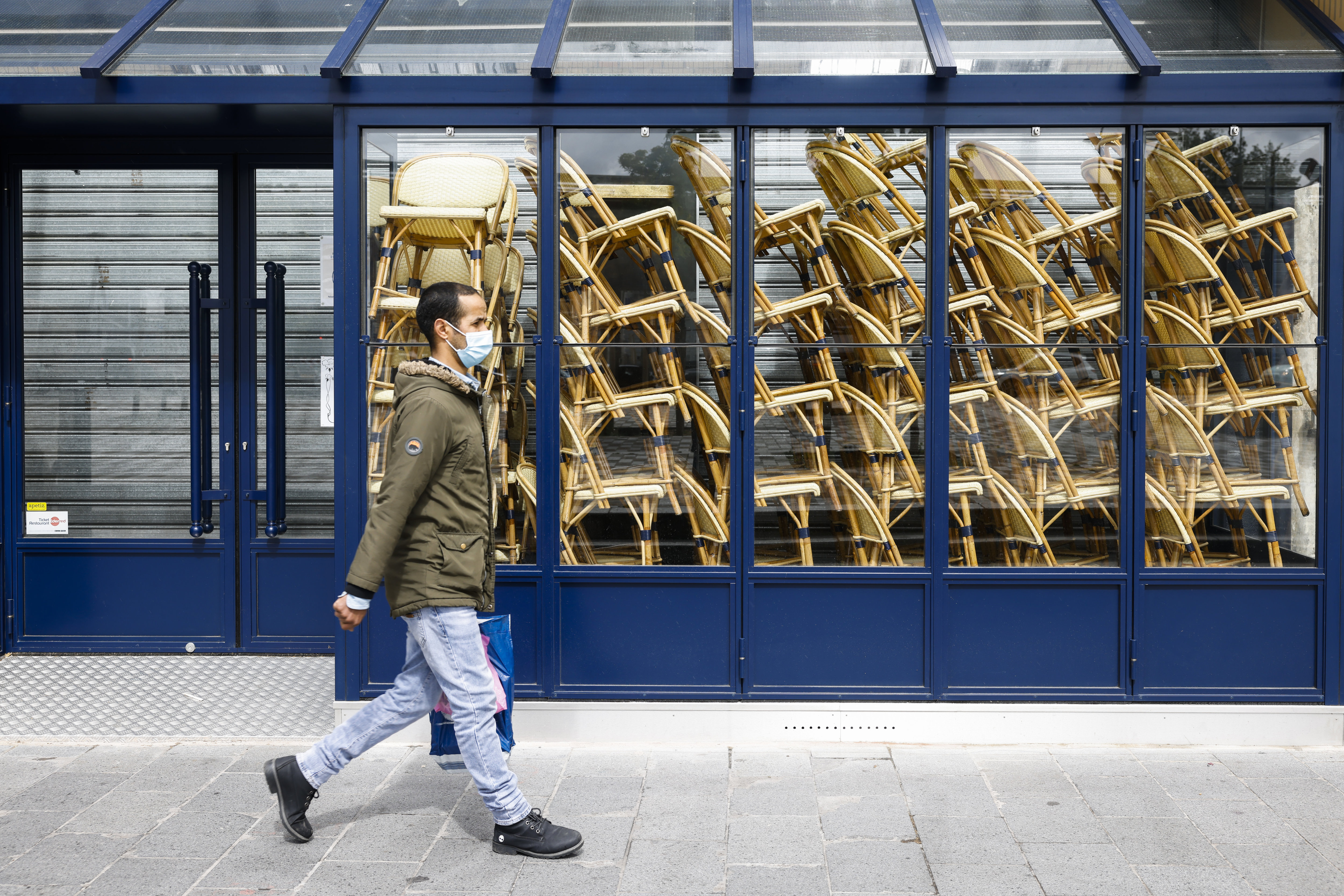We're reopening!
Before closing?
If the second stage of deconfinement launched this Wednesday will undoubtedly offer a hell of a breath of fresh air to millions of French people, be careful not to claim victory too quickly.
The government risks facing outbreaks of epidemics locally.
He himself has already warned that he would not hesitate, in certain departments or metropolitan areas, to impose new measures if the situation worsened.
But which ones?
Should it be "hard but short", namely containment or strict closures, hoping for a faster impact?
This is what suggests a study posted on Sunday on the prepublication site medRxiv (it has not yet been peer-reviewed), and relayed this Tuesday by its main author, the epidemiologist Vittoria Colizza, research director. at Inserm. The work of this group of researchers focuses on Île-de-France but the results are supposed to apply to the whole country. They can be summed up as follows: moderate restriction measures, of the type experienced in recent weeks, take much longer to produce the same effects as strict confinement, with the addition of "the potential risk of losing the adhesion of population ".
Adherence and sustainability of interventions informing optimal control against COVID-19 pandemichttps: //t.co/8Z2Op3JjGO
W / @laura_didom @chiaresabbatini PY Boëlle @chpoletto @PascalCrepey J Paireau @SCauchemez F Beck, H Noel, D Lévy-Bruhl 1 / pic .twitter.com / AfmnqLXhjE
- Vittoria Colizza (@vcolizza) May 18, 2021
“The objective of this study is not to say if one type of containment works better than another and no one is saying that light containment does not work, on the contrary.
But we know that it will last longer to achieve the same result, and we wanted to ask ourselves if there were not also less directly visible impacts, ”explains Vittoria Colizza.
"Distress" indicator
To achieve an effect similar to that of a strict two-week lockdown, looser restrictions would have to be extended for "more than two months."
But their effectiveness "could potentially be compromised" if they were less and less respected.
A sort of "high plateau" could then be reached, a bit like that of mid-December to the end of February.
“The country was not reconfigured in January, but there were a number of restrictive measures in place, which were spread over time and which had an impact on mental health and the quality of life of the population, ”says epidemiologist Pascal Crepey, one of the co-authors of the study.
Read also Reopenings in mid-May: warnings from the Institut Pasteur
An eight-week “soft” confinement of course generates a cumulative number of people requiring greater hospitalization, but not only.
A strict two-week confinement would, for example, prevent “around 30,000 long-term Covid cases among the infections detected from mid-March to the end of June,” the researchers believe.
They also worked on an indicator of “distress”, calculated according to the intensity, duration and adherence to each type of restriction.
“The objective was to be able to compare the impact in psychosocial terms and on individual freedoms,” explains Vittoria Colizza.
For a similar level of distress, a “strict” confinement of four weeks would lead, by the end of June, to three times fewer hospitalized patients than a more flexible confinement of 6 or eight weeks.
Several limits
Still, the epidemic is already in sharp decline in France, the incidence rate having dropped from 400 to 150 in just over a month. The closure of schools for three weeks and those of colleges and high schools for four weeks in April "accelerated" this decline, says Vittoria Colizza. The public holidays disrupt the reading of the indicators, but the rate of decline seems to have slowed slightly over the past few days, which will have to be watched carefully.
France, like all of Europe, also benefits from the seasonal aspect.
A growing body of work suggests that the virus “doesn't like” hot, humid weather conditions.
The return of sunny days can also encourage people to go outdoors, where the risk of contamination is lower.
Seasonality would have to cause a 5 to 10% drop in the transmissibility of the virus to compensate for a potential loss of adherence to the measures in force, say the authors of the study.
By adding an acceleration in the rate of vaccination, this could compensate for the fact that the measures are less followed, or even "to reverse the epidemic faster than expected".
Read alsoA return to normal life thanks to vaccination?
What the new Institut Pasteur study says
Like all others, this study has many limitations. It does not take into account the economic aspect of things at all, which nevertheless plays an obvious role in public decision-making. It is only based on a single region and does not take into account the possible impact of variants other than the so-called “British” one, still largely in the majority in France, nor the fact that vaccination could slow down once half of the population will have been vaccinated. So many conditions "specific to this third wave", to use Vittoria Colizza's expression, and which, as always, make any prediction impossible.

